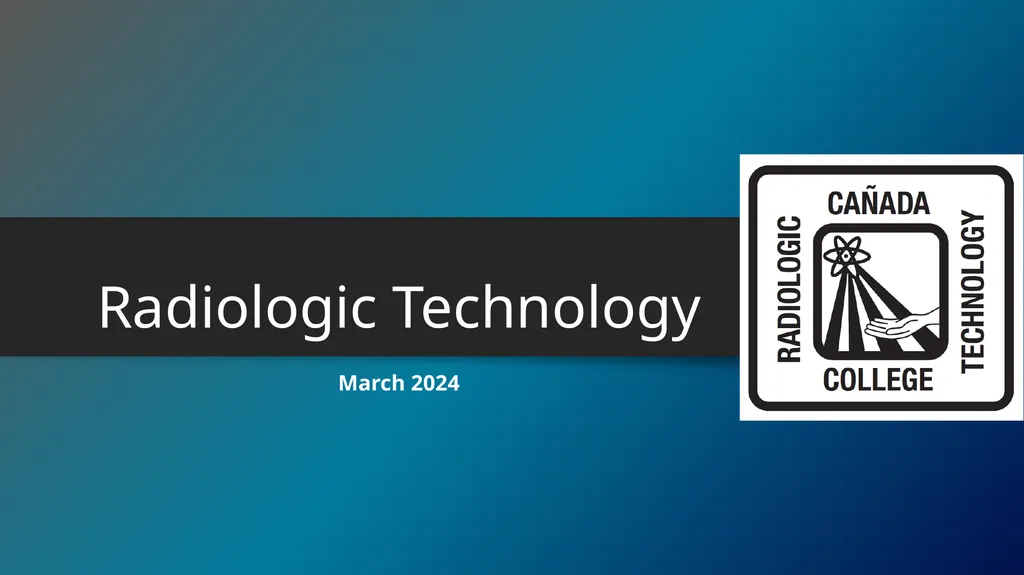
Author : liane-varnes | Published Date : 2025-05-09
Description: Radiologic Technology March 2024 Radiologic Technology Program Mission The mission of the Radiologic Technology Program at Canada College is to provide a high-quality vocational education to members of our diverse community who seek aDownload Presentation The PPT/PDF document "" is the property of its rightful owner. Permission is granted to download and print the materials on this website for personal, non-commercial use only, and to display it on your personal computer provided you do not modify the materials and that you retain all copyright notices contained in the materials. By downloading content from our website, you accept the terms of this agreement.
Here is the link to download the presentation.
"Radiologic Technology March 2024 Radiologic"The content belongs to its owner. You may download and print it for personal use, without modification, and keep all copyright notices. By downloading, you agree to these terms.













